Have you ever eaten a McDonald’s and been hungry again an hour later?
The problem isn’t the lack of overall calories, it’s the feeling of not being satiated, because it’s void of nutrients.
And I believe magic currently suffers from a similar problem.
So here are a few predictions of where I think magic is heading…
First Prediction: Digital Magic Has Reached Saturation
I walked around the dealers hall at Blackpool Magic Convention. Everyone has an app, everyone has an impression device, everyone has bluetooth dice.
It’s impossible to keep up with what it all does & who has the best version of anything.
Without naming names, 2 different technology tricks were shown to me & they both failed.
- The first was someone failing to get the peek of my word (because it was a brand name).
- The second fail was someone who asked me to go “as far as I wanted" away from them to write a word. I came back and they said “my pen disconnected, we’ll have to do that again.”
When both instances occurred, the first thought that came into my brain was…
“A billet peek would never fail in these situations.”
And sure as s***, Adam Casper was going around the convention using a clean billet peek to fool everyone.
This phenomenon can be explained by the saturation cycle that I’ve put in a previous blog post…
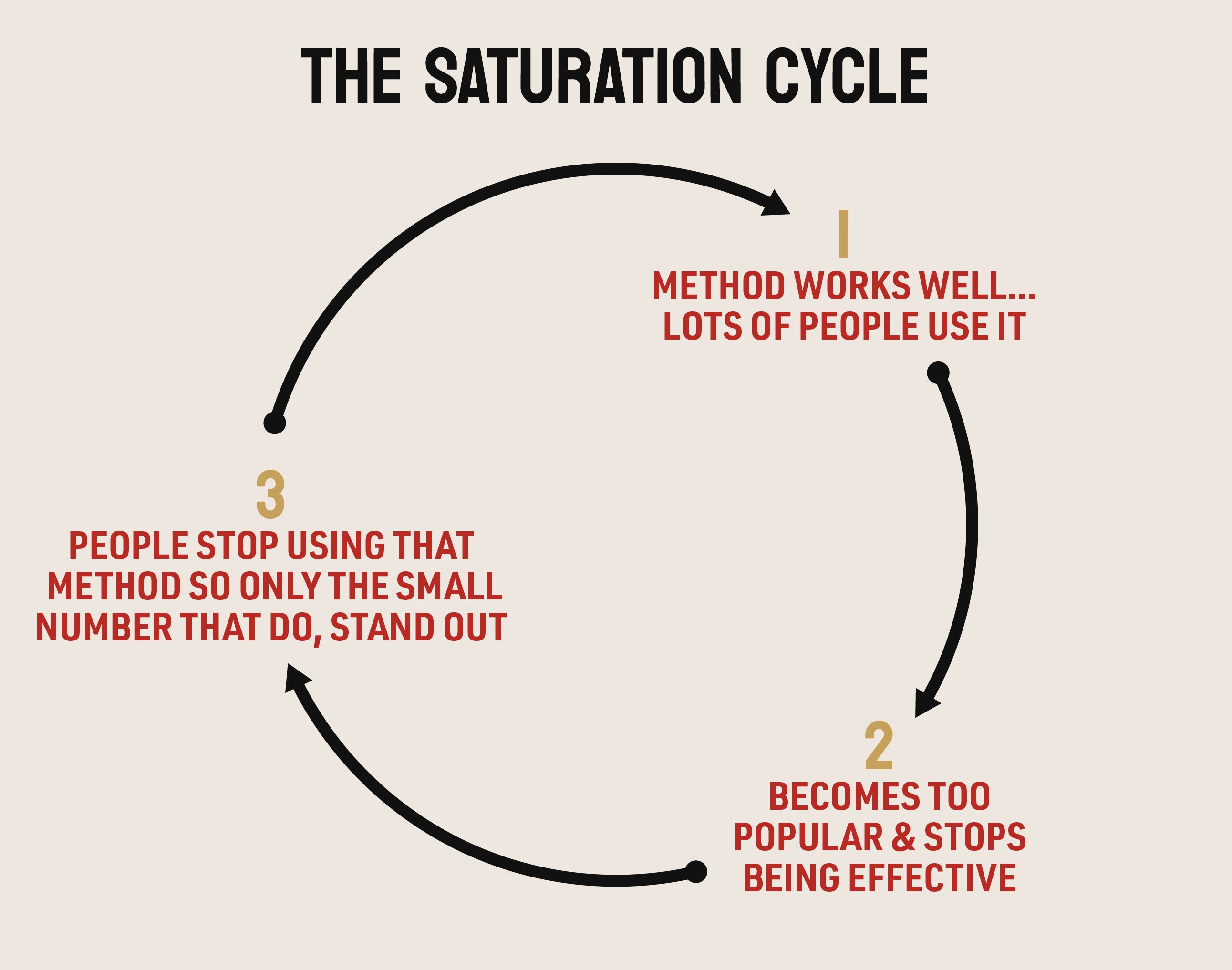
I think technology has a place in magic, to facilitate - but in many cases it’s jumped the shark in terms of how it’s being used.
Sidnote: "The idiom "jumping the shark" or "jump the shark" is a term that is used to argue that a creative work or entity has reached a point in which it has exhausted its core intent.
This kind of magic is being presented in a very linear process.
- “You type it in my phone. I’ll tell you what it is… Magic.”
- "You write it down with my special pen, I'll tell you what it is... Magic."
No, that’s not magic.
It’s this very linear presentation that signals how saturated digital magic is. There are apps for apps-sake and devices, for the sake of having a device.
Pete Turner and Mark Lemon taught me about a philosophy in mentalism called ‘Technology in, technology out’ - which I believe was first attributed to Marc Kerstein.
The basic concept here is that you shouldn’t use technology for both the method & revelation. If you use it for your input, you shouldn’t use it for your output - and vice versa.
Let me simplify it. If you use Cipher Pro to get your peek, you shouldn’t then reveal their star sign via a google search. If the phone was used to attain the information, it’s better to ‘reveal’ it in a more analogue way (like with a billet or pad of paper).
Using technology in this way helps to mask methods and make the magic & mentalism more impressive.
Over the next few years buyers will catch on to this saturation and after their third peek device & the 50th magic app, they’ll realise they’ve got enough already.
Almost everything is a cycle and I believe the overuse of digital methods is going to create a waves towards more analogue methods as people get sick of the saturation and go in search of the alternative.
Of course there can be good apps and good devices that will stand out - but this same saturation cycle can be used to explain the decline of fashion trends, super hero movies, social media use & more.
Then, in a few years an ‘innovation’ occurs and the cycle starts over.
Second Prediction: The Pendulum of Skill
There is actual science behind the pursuit and achievement of a goal. Maybe you’ve heard of ‘dopamine’ before?
Dopamine is a motivation & reward chemical. It’s released during the pursuit and achievement of something.
Aka… You’ll appreciate something more if you’ve had to work for it.
This is true of learning a new skill, driving 20 minutes to get ice-cream or dating your future wife.
The extra effort & pursuit helps the reward feel much better.
I heard Dan Bilzerian (worth $100million) talking about dopamine before.
He always wanted a jet-ski, and for the first week of getting one it was great. Then he became mega rich - and had 10 jet-skis… Now a jet-ski means nothing to him. He cannot enjoy it in the same way.
When something is served to you on a plate, with no effort, you value it less. Fact.
I believe that same dopamine trend has hit magic. It has swung so far to the ‘zero skill, zero practice, super easy’ side, that people are failing to get enough of a dopamine hit from their new purchase.
They don’t have to invest time in it, they don’t need to practice, they don’t need to overcome challenges. So the effect means less to them.
It goes in the drawer, never to be seen again - because it didn’t fulfil them.
In a recent survey I ran, 65% of magicians answered “no” when I asked if they were ‘always’ satisfied with their magic purchase.
Conversely, when asked why they don’t like a product, only 4% of responders said it was because it took “too much practice.”
So it’s not the effort that scares us, it’s the lack of pay-off in the effect that’s most disappointing. Like when a method is too contrived for the small effect it can create.
People are starting to ask themselves... "Do I need to carry 'that gimmicked deck' when a top palm can achieve the same outcome?"
I predict the pendulum within magic is about to swing back to the appreciation of skill, practice, effort and specialisms.
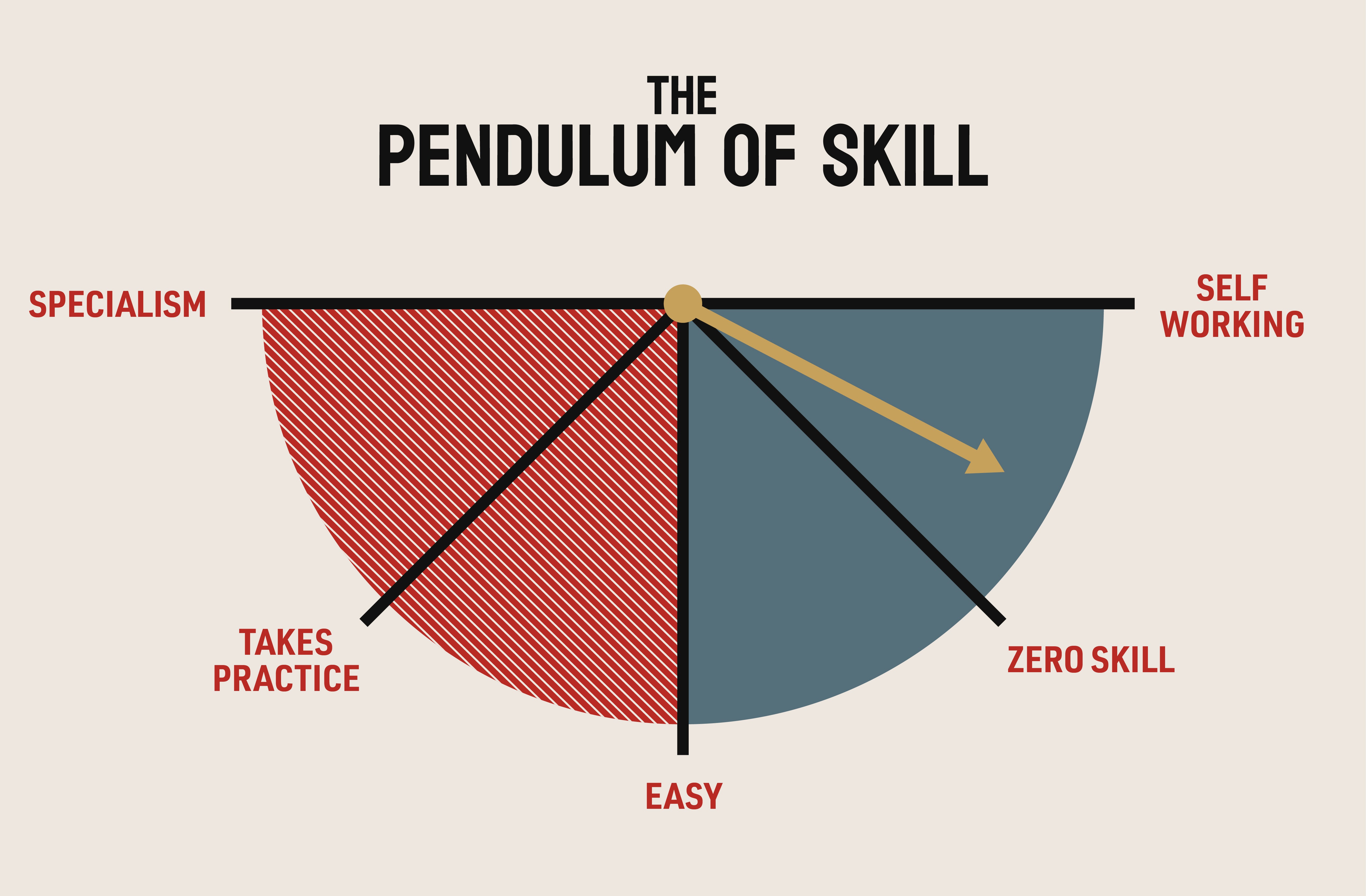
For years it’s been about ‘self-working’ or ‘super-easy’ - But I believe it’s leaving a lot of magicians feeling under-satiated. Feeling empty. They’re chasing the next effect because the last one didn’t fulfil them enough.
That’s not to say that self-working effects won’t become bangers, it’s just saying that the industry trend will shift en masse.
What do you think of these predictions? Let me know in the comments below - and share your predictions for the magic community to see.


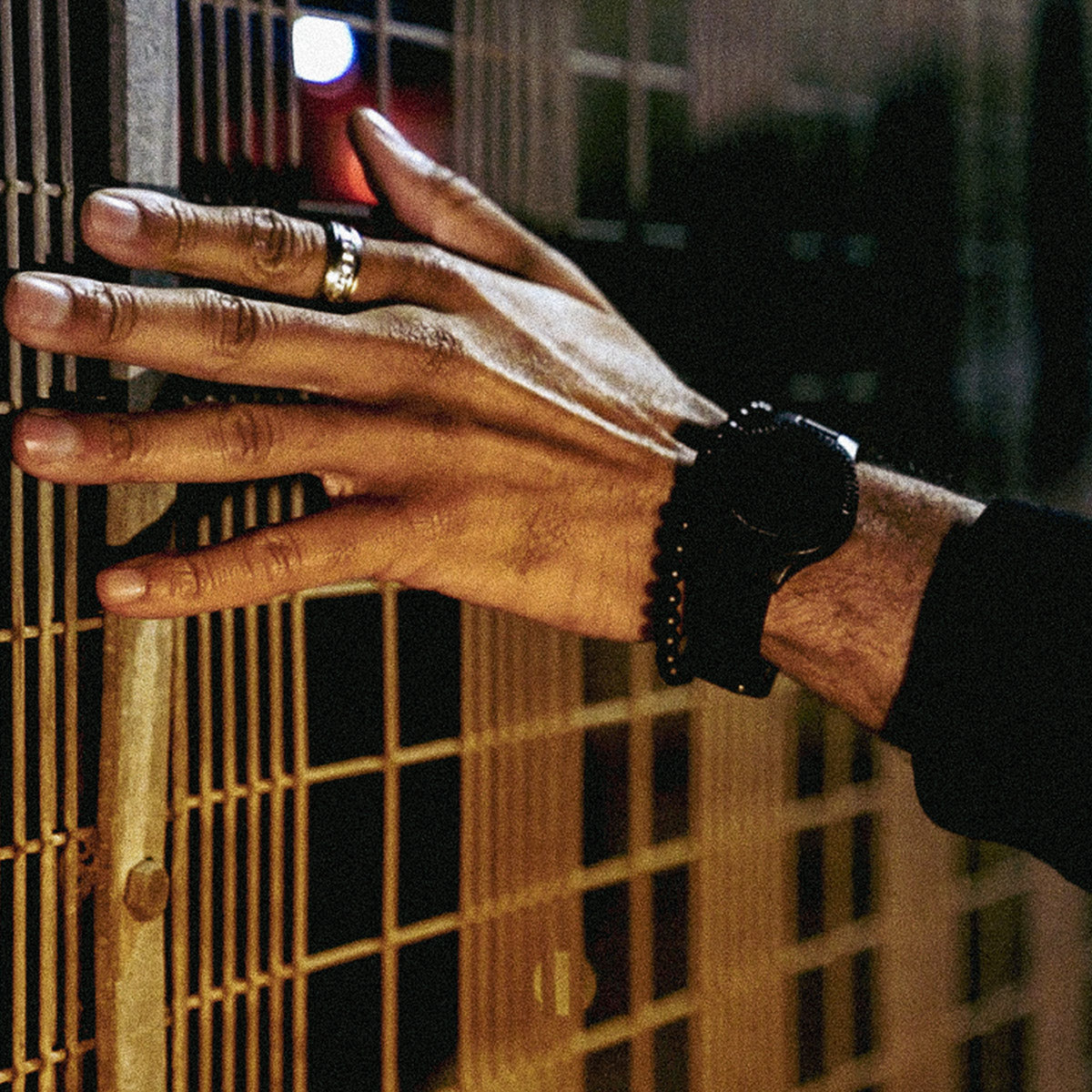
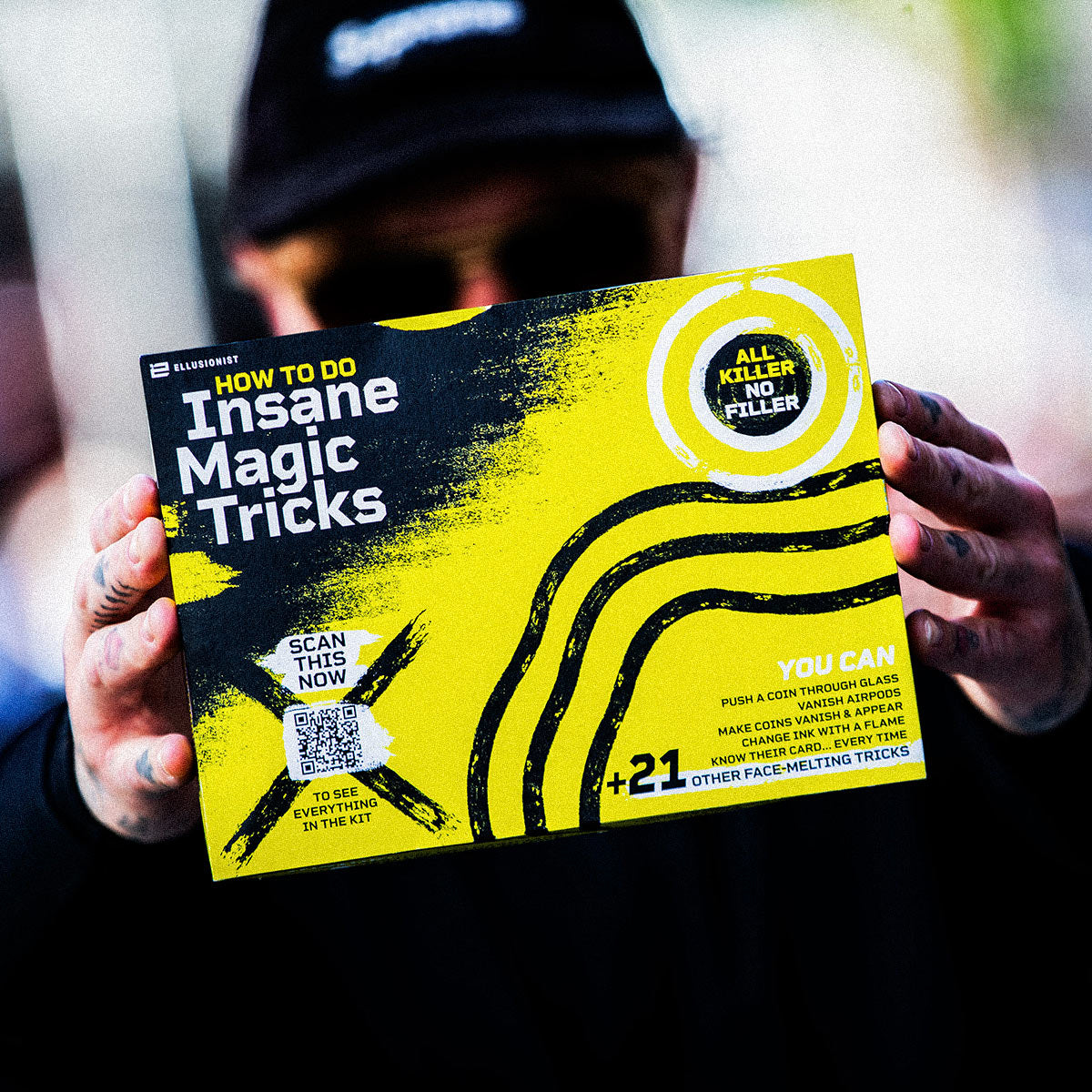
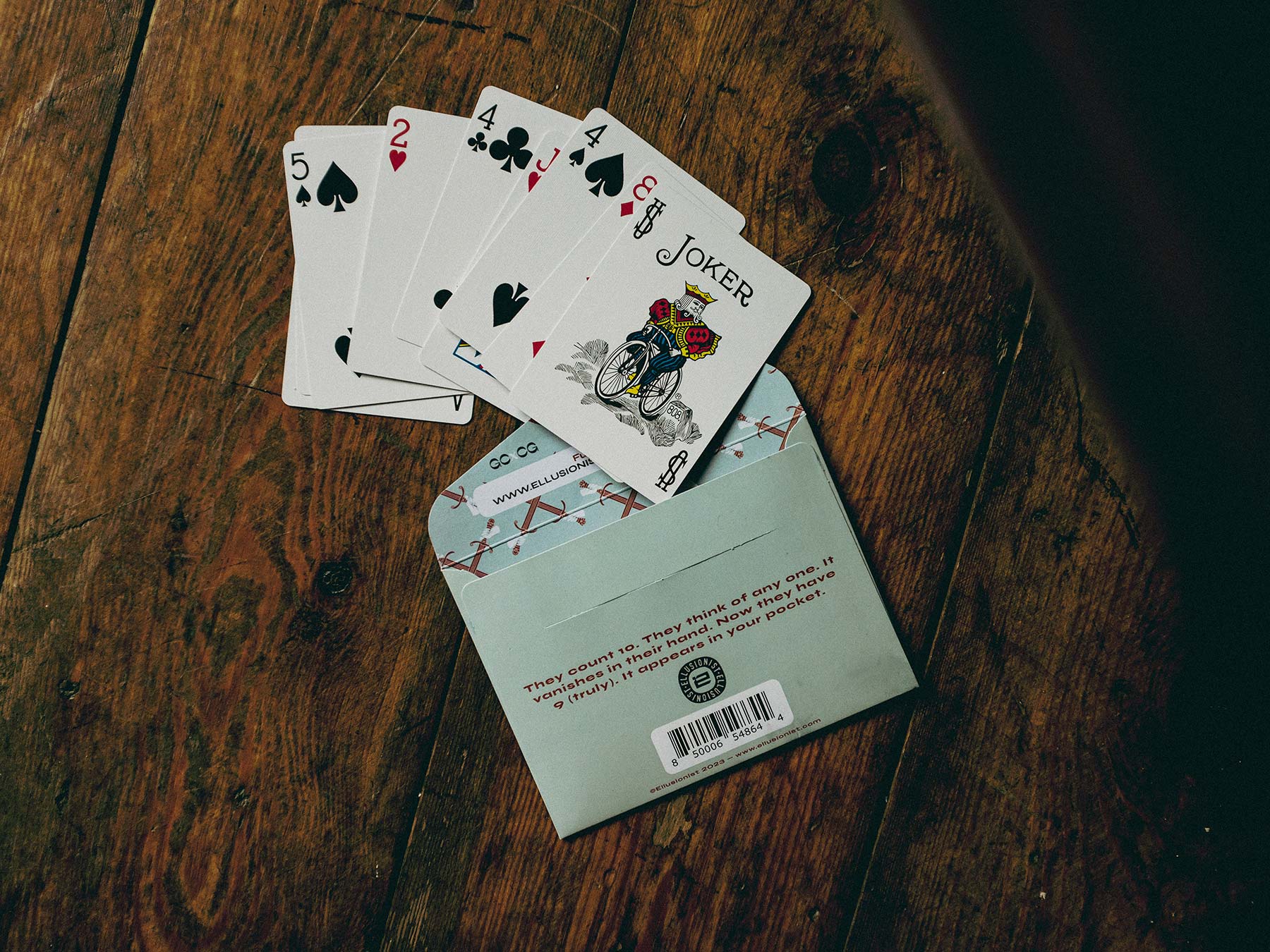



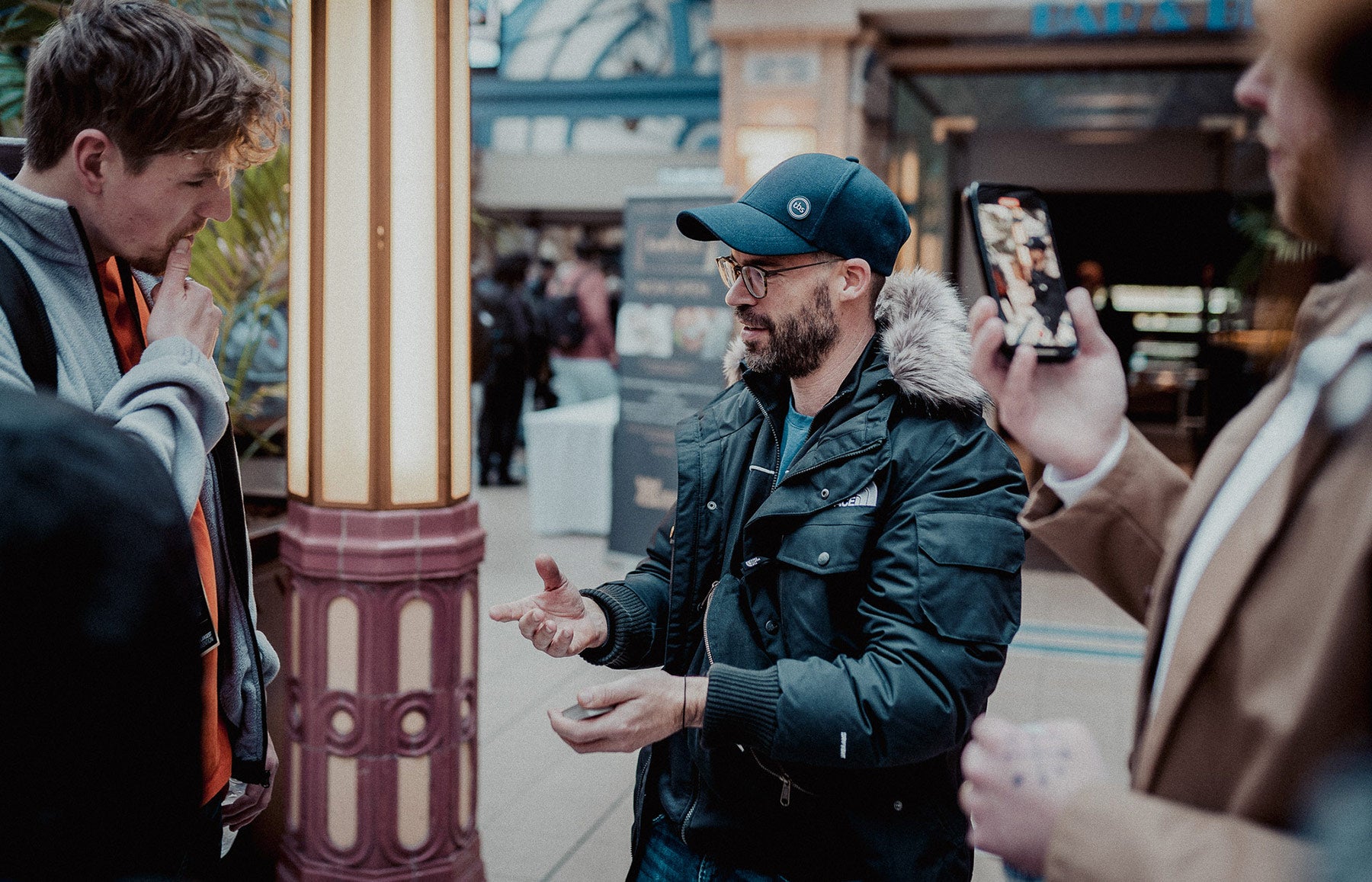
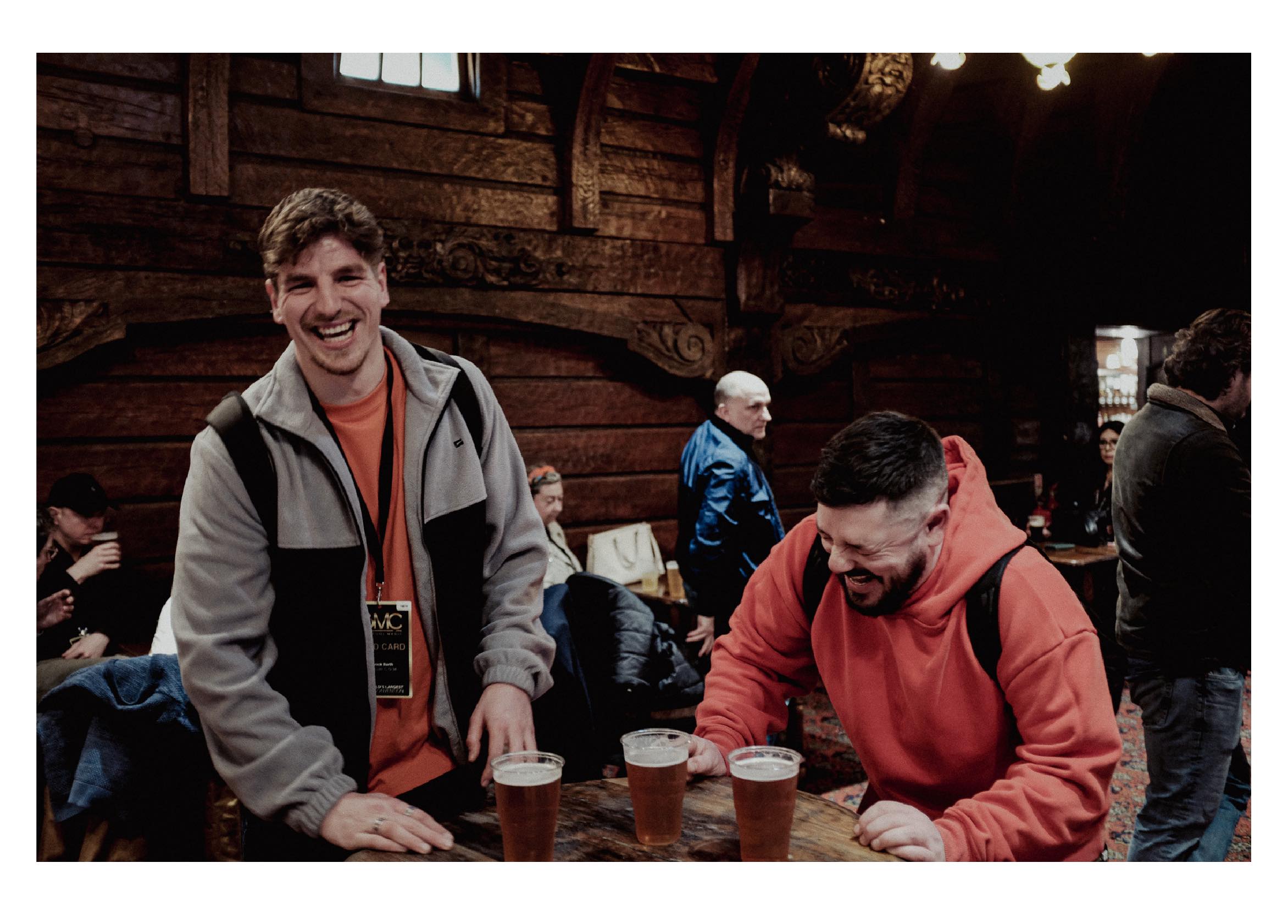
15 comments
Michael
I fully agree with you. People around me know I like magic often ask me whether I’ve seen one or another magic (stage) show, for example the Ehrlich brothers or other. I always reply that if I want to see magic, I go to the pedestrian zone in the city and find that one magician who is really good with his coins, cards, whatever – as long as it is “skill magic”. In both cases I know there’s a method/trick, but a good slight of hand will ever impress and entertain me more than stage magic with lots of technology / engineering behind it e. g. a car vanishing from a stage. Perfect example for me would be Moritz Mueller with his one-coin routine.
Rene
I agree 100%
Victor Oriza
I been thinking the same thing! Magicians now a days are not willing to put the effort and time to practice! They carry 10 different gimmick decks, when you can achieve the same effects with one ungimmick deck, misdirection and skill! Great article G!!
Peter
Great article as always, thanks Geraint.
Satya
Very nice article you have written…
Really liked the dopamine part…
One more thing happening with magic is the reels and magic expose videos…
This is the time where magicians should work more on increasing their skills and innovativeness…
Regards
Leave a comment
All comments are moderated before being published.
This site is protected by hCaptcha and the hCaptcha Privacy Policy and Terms of Service apply.